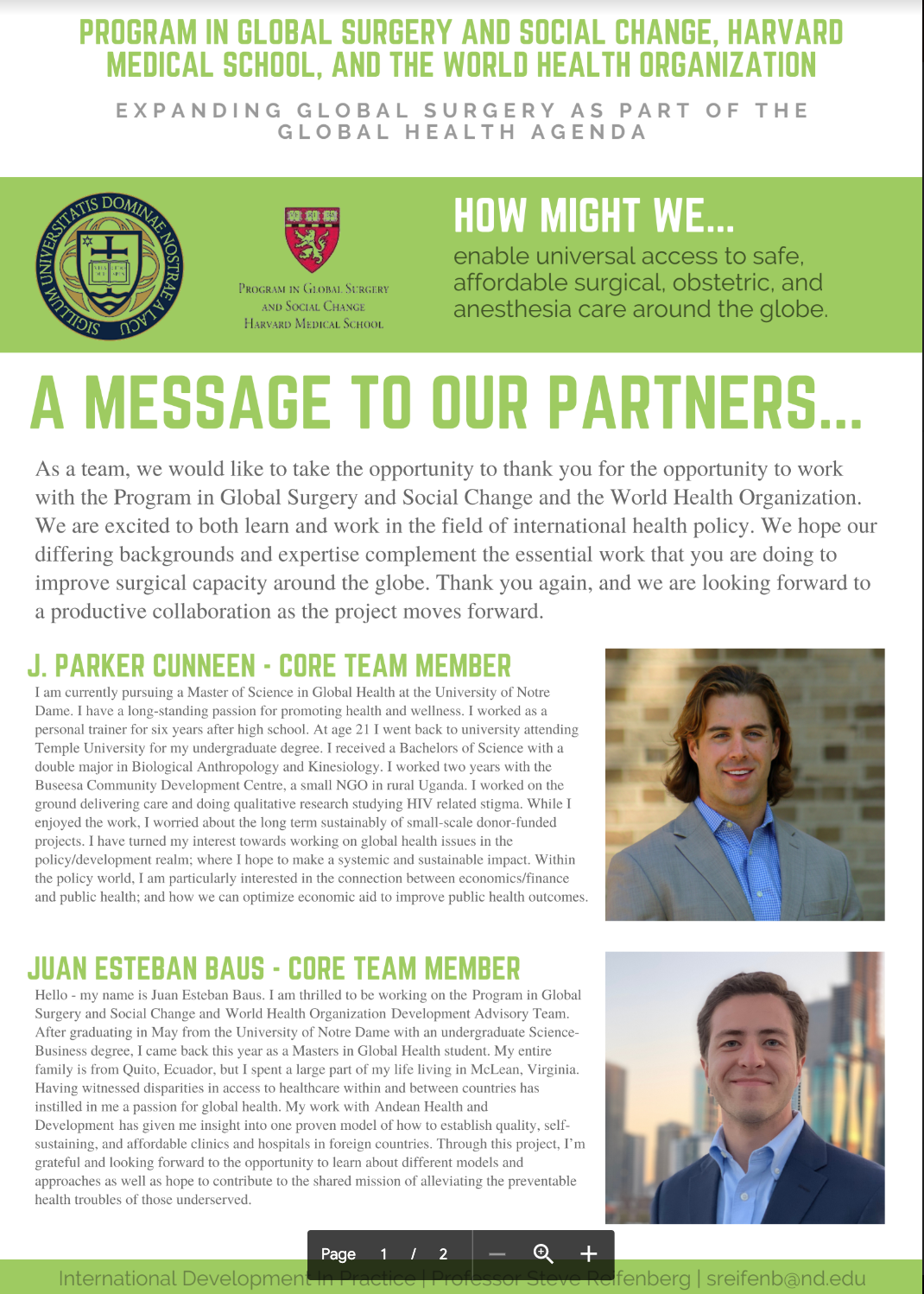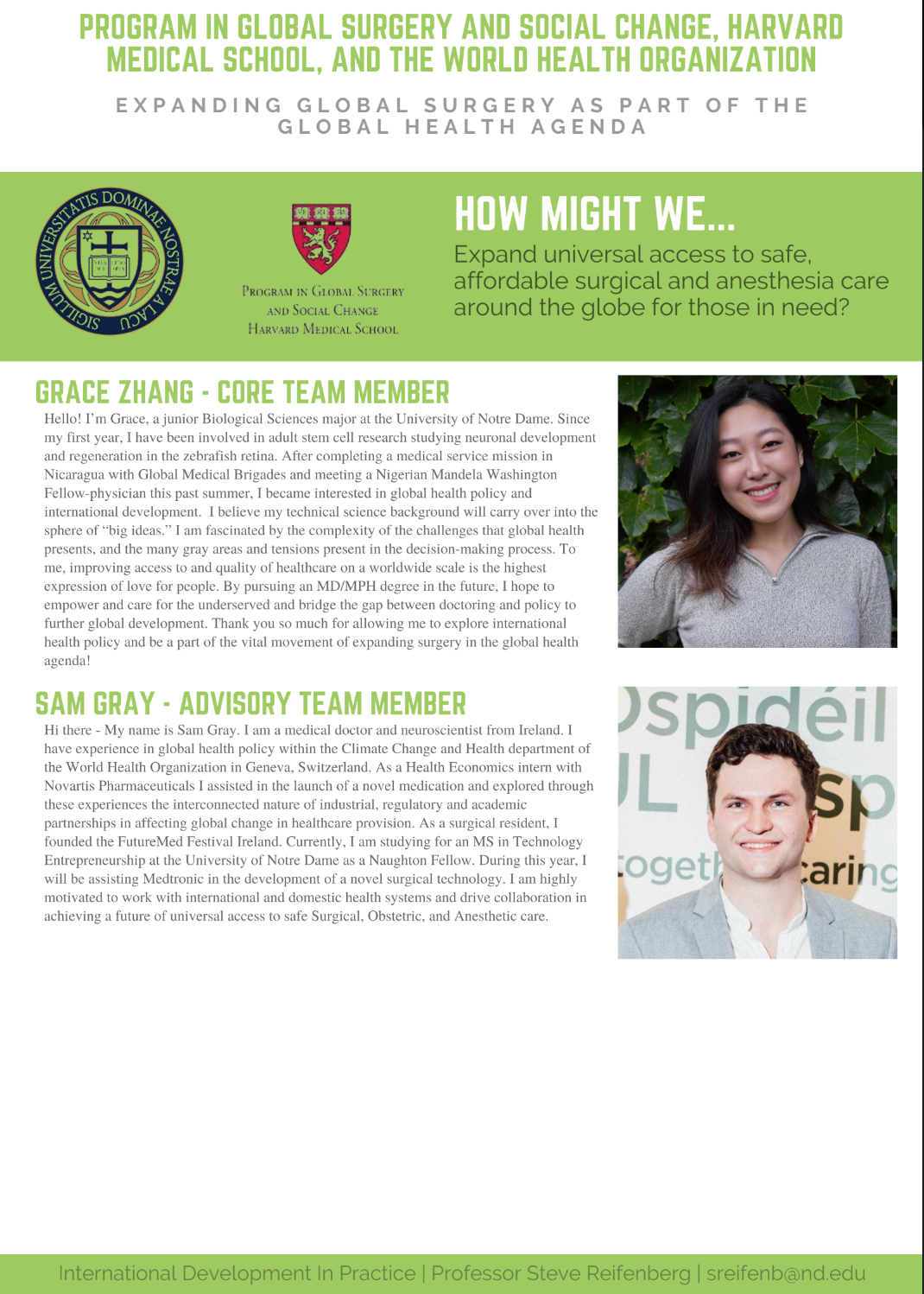Project Background
Organizational Background: The Program on Global Surgery and Social Change (PGSSC) is a collaborative effort between the Harvard teaching hospitals, Harvard Medical School/ Department of Global Health and Social Medicine, Boston Children’s Hospital (BCH) and Partners In Health (PIH). This organization emerged from work of the Lancet Commission on Global Surgery, led by Dr. John Meara at Harvard Medical School (and a 1986 ND graduate). PGSSC’s objective is to advocate for Universal access to safe, affordable surgical and anesthesia care when needed. Their strategy is two-fold:
Global Surgical Systems Strengthening through Research, Advocacy, and Implementation Science, using the Frameworks developed as part of the Lancet Commission on Global Surgery.
Developing Leaders in Global Surgical and Health Systems through Research, Advocacy, and Care Delivery.
PGSSC research focuses on surgical and health systems strengthening that is measurable, transparent, and locally-driven.
Definition of Opportunity
The PGSSC has worked across the globe with governments to develop and implement National Surgical, Obstetric, and Anesthesia Plans (NSOAPs) to expand access to surgery particular for poor and rural communities. The Government of Ecuador (and specifically the country’s vice president, a neurosurgeon) has reached out to explore PGSSC working collaboratively with the MInistry of Health and other public officials in Ecuador to develop an NSOAP for Ecuador. An important first step of the process is to identify and map key health sector stakeholders who will take part in consultations to understand the context and build support for the NSOAP process.
Definition of Success
It will be very important to get the input of the scholars as early and often as possible. Dr. Juliana is very supportive of this and will help you set up those meetings either through zoom or Whatsapp.
The RRF scholars will share their stories and in the process work with the ND students to create a learning platform.





